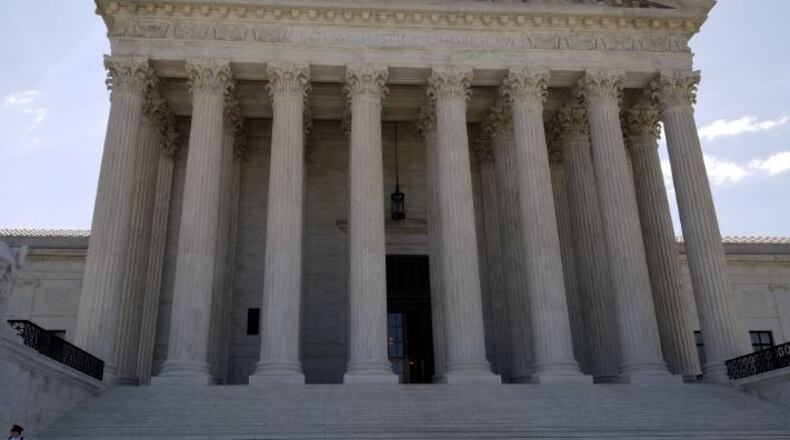The Chief Justice of the United States on Sunday evening put on hold a lower court order which levied a daily fine against an unknown foreign company owned by an unnamed foreign country, giving that company until New Year's Eve to submit arguments as to why it should not be subject to a secret grand jury subpoena, which many believe is related to the investigation of Special Counsel Robert Mueller.
In a short written order, Chief Justice John Roberts temporarily stayed a secret ruling by a U.S. District Judge in Washington, which fined the unknown company an undisclosed amount of money - with the penalty increasingly daily - for not complying with the sealed grand jury subpoena.
The administrative order by the Chief Justice gave no more hints as to the identity of the company, the foreign country, or the issue at hand - and did not confirm that it was part of the Mueller probe.
But the secrecy - and the speed at which this matter reached the U.S. Supreme Court - has raised eyebrows in the nation's capital, including the highly unusual situation earlier this month, in which an entire floor of a federal courthouse was sealed off from reporters and the public, in order to have arguments before a three judge appeals panel.
Credit: Jamie Dupree
Credit: Jamie Dupree
Roberts set a deadline of Monday December 31 at noon for a response by the unknown company and the Justice Department.
The Chief Justice acted a day after the unknown company appealed to the Supreme Court for relief from the grand jury subpoena, capping a swift move through the courts - all of it in secret.
The only reason any bare details are known about the case is from a three page ruling by a three judge appeals court panel last week, which said the foreign company had to comply with the subpoena.
Legal experts said the move by the Chief Justice could just be the start of legal review by the nation's highest court, which some believe has never conducted arguments and briefs completely in secret.
"his is an administrative stay to preserve the status quo long enough to decide whether to issue a regular stay," said Steve Vladeck, a law professor at the University of Texas, who said on Twitter that this "is not all that unusual."
But he secret nature of the case has drawn a lot of interest - and now, the attention of the U.S. Supreme Court.
About the Author
The Latest
Featured




